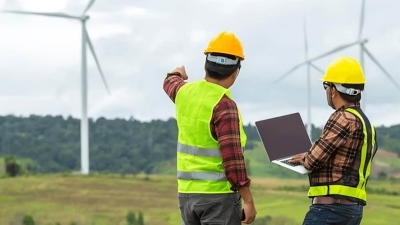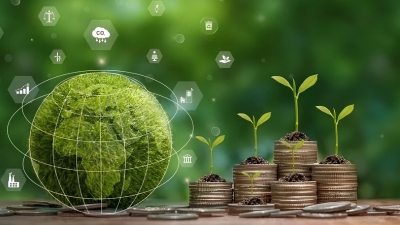Jobs Furlture: how will a sustainable economy change the labour market?

As the global trend towards a green economy grows, the main challenge for States and Governments is how to coordinate economic policies to achieve this goal, taking into account social and climate conditions, so that the potential negative effects of this shift on States' economies and societies are minimized, which raises the question of how will a sustainable economy change the labour market?
The shift towards a sustainable economy is expected to bring about fundamental changes in the labour market at several levels, on the one hand, new jobs will emerge in emerging sectors associated with renewable energy, green technology and sustainable infrastructure, and these transformations will create a growing demand for new skills related to environmental techniques and resource management
On the other hand, some traditional sectors may come under considerable pressure as reliance on fossil fuels declines and restrictions on polluting industries increase, leading to a decline in the number of jobs in those industries, requiring comprehensive plans to retrain and redirect workers to new sustainable sectors.
Furthermore, a sustainable economy will require the development of social and economic policies that ensure equitable and inclusive transformation, so that no part of society is excluded or impoverished as a result of such transformation. For example, Governments can implement financial support and retraining programmes targeting affected groups, as well as provide incentives to SMEs adopting sustainable environmental practices.
Besides the transformation of the labour market, innovation and technology will play an important role in supporting a sustainable economy, Where progress in areas such as artificial intelligence, analysis of big data, The Internet of Things will enable companies to improve resource efficiency innovations will contribute to the creation of new jobs that require advanced skills in green technology, It will open up innovative solutions to the world's environmental challenges
Governments and companies will also need significant investments to achieve sustainable goals, and to stimulate these investments governments can provide financial facilities such as low-interest loans, or guarantee investments in green sectors.
The private sector can also be encouraged to participate by creating carbon markets or providing tax incentives to companies that reduce their carbon emissions.
hence; Developing countries, in particular, must develop strategic plans to support the transition to a sustainable economy, commensurate with their economic and social conditions. These plans can include the development of policies that stimulate domestic economic growth through sustainable exploitation of natural resources and the creation of jobs in environmental sectors.
In addition, they must work to expand international cooperation to ensure that these States receive the necessary technological and financial support for a successful transition to a green economy.
In conclusion, to ensure a sustainable economy, a comprehensive vision must be embraced, including technology, investment, education and social policies, ensuring a just and inclusive transformation that benefits all through effective partnership between Governments, the private sector and civil society, we can build a sustainable economic future that balances economic growth and environmental protection.












